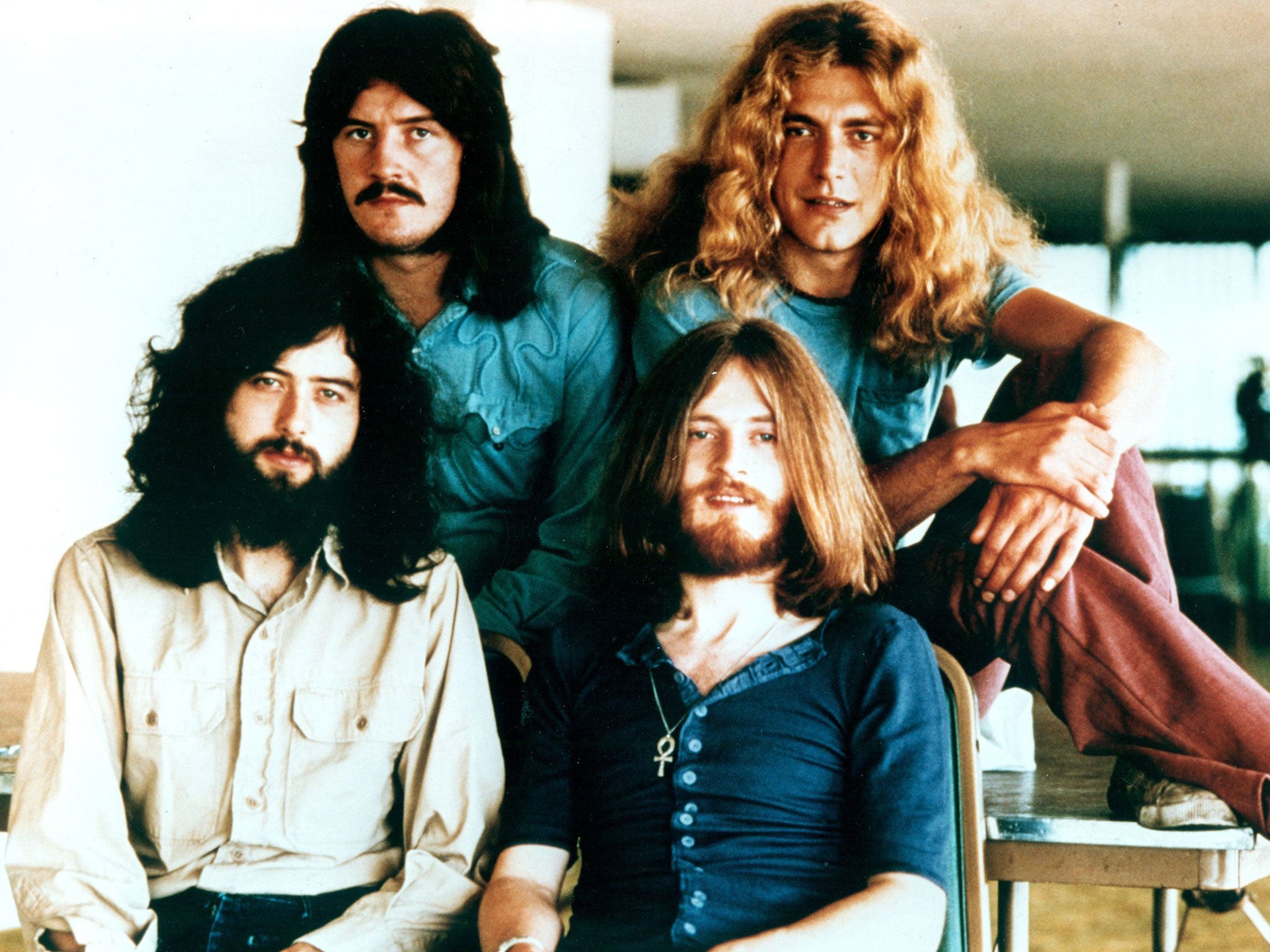“Stairway to Heaven” – Led Zeppelin

“Stairway to Heaven” by Led Zeppelin: A Timeless Epic of Rock Music
“Stairway to Heaven” by Led Zeppelin, released in 1971 on their fourth album Led Zeppelin IV, is widely regarded as one of the greatest rock songs of all time. Written by guitarist Jimmy Page and vocalist Robert Plant, the song has transcended its era to become a timeless piece of music that continues to captivate listeners with its mystical lyrics, complex composition, and emotional depth. It stands as a defining moment in rock history and as a testament to Led Zeppelin’s musical genius.
At its core, “Stairway to Heaven” is a journey—a gradual ascent from calm introspection to overwhelming intensity, mirrored by the progression of the song itself. The track begins softly, with an acoustic guitar playing a gentle arpeggio, accompanied by a recorder that gives the opening a medieval, almost ethereal quality. Robert Plant’s vocals enter with cryptic, poetic lyrics that tell the story of a woman who is “buying a stairway to heaven.” The ambiguity of the lyrics has sparked endless interpretation and discussion among fans and critics, with some seeing them as a reflection on materialism and spiritual emptiness, while others view them as a metaphor for life’s journey or an exploration of philosophical themes.

As the song unfolds, it gradually builds in complexity, with new layers of instrumentation added. John Paul Jones’ bass and John Bonham’s drums come in subtly, while Page’s guitar transitions from the acoustic to electric, slowly increasing the intensity. This gradual build-up creates a sense of anticipation, as though the listener is being led step by step towards something grand and climactic. The middle section of the song features a beautifully composed instrumental bridge, where Page’s guitar work becomes more intricate, weaving together melodic lines that complement the song’s evolving mood.
The final section of “Stairway to Heaven” is where the song reaches its peak. After a nearly five-minute build-up, the song explodes into a powerful and exhilarating guitar solo by Jimmy Page, often considered one of the greatest guitar solos in rock history. The solo is emotionally charged, technically impressive, and serves as a cathartic release after the tension that has been building throughout the song. Plant’s vocals also become more intense and impassioned, as he sings the famous lines, “And as we wind on down the road / Our shadows taller than our soul.”
The song’s climax is followed by a dramatic shift in tempo and dynamics. The intensity subsides, and the song closes with a return to the quiet, reflective tone of the beginning, with Plant softly singing, “And she’s buying a stairway to heaven.” The cyclical nature of the song’s structure, with its rise, climax, and fall, mirrors the journey of life, suggesting that the ultimate destination is both elusive and mysterious.
One of the reasons “Stairway to Heaven” has endured for so long is its sheer musical sophistication. The song is composed in a way that defies the conventional structure of popular music, with no clear chorus and a length of over eight minutes—unusually long for a rock song at the time. Yet its seamless flow and dynamic range keep listeners engaged from beginning to end. Each section of the song feels connected yet distinct, offering a sense of progression and movement that adds to the song’s epic quality.

The lyrical content of “Stairway to Heaven” is another reason for its lasting impact. Robert Plant’s lyrics are enigmatic and open to interpretation, with references to mythology, spirituality, and existential themes. Lines like “There’s a feeling I get when I look to the west” and “The piper’s calling you to join him” evoke a sense of mystery and wonder, allowing listeners to project their own meanings onto the song. This ambiguity has contributed to the song’s mystique and has kept fans returning to it, trying to decipher its meanings.
“Stairway to Heaven” was not released as a single, yet it became one of the most requested songs on FM radio during the 1970s and remains a staple of classic rock radio to this day. Its influence can be heard in countless rock and metal songs that followed, and it has been covered by numerous artists across a wide range of genres. Despite its popularity, the song has also been the subject of controversy, with some claiming that it contains hidden messages when played backward—a claim that the band has denied. Nonetheless, this only adds to the song’s aura of mystery and intrigue.

Beyond its musical and lyrical brilliance, “Stairway to Heaven” is often seen as the pinnacle of Led Zeppelin’s career. It encapsulates their ability to blend rock, folk, and blues into something truly unique, while also showcasing the talents of each band member—Page’s innovative guitar work, Plant’s powerful vocals, Jones’ multi-instrumental prowess, and Bonham’s thunderous drumming. The song’s success helped solidify Led Zeppelin’s status as one of the greatest rock bands of all time, and it remains one of their most enduring legacies.
In conclusion, “Stairway to Heaven” by Led Zeppelin is not just a song—it is an experience. Its intricate composition, profound lyrics, and emotional depth make it a timeless piece of music that continues to resonate with audiences over 50 years after its release. It stands as a symbol of rock’s ability to transcend simple entertainment and become a form of art that speaks to the human condition, offering listeners a journey through sound, emotion, and meaning. “Stairway to Heaven” will likely remain a cornerstone of rock music for generations to come, a testament to the genius of Led Zeppelin and their place in the pantheon of musical history.












